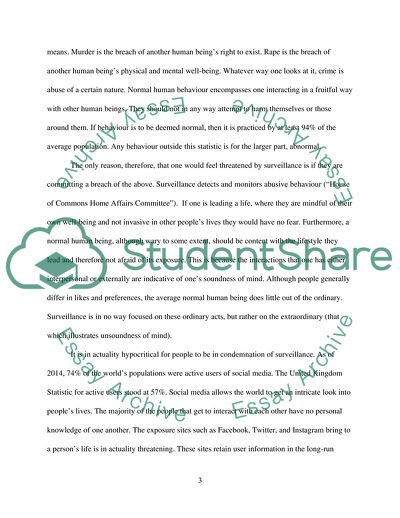Cite this document
(Surveillance Is Only Appalling to People with Hidden Agendas Essay, n.d.)
Surveillance Is Only Appalling to People with Hidden Agendas Essay. https://studentshare.org/sociology/1865829-the-only-people-worried-about-surveillance-are-those-who-have-something-to-hide-discuss
Surveillance Is Only Appalling to People with Hidden Agendas Essay. https://studentshare.org/sociology/1865829-the-only-people-worried-about-surveillance-are-those-who-have-something-to-hide-discuss
(Surveillance Is Only Appalling to People With Hidden Agendas Essay)
Surveillance Is Only Appalling to People With Hidden Agendas Essay. https://studentshare.org/sociology/1865829-the-only-people-worried-about-surveillance-are-those-who-have-something-to-hide-discuss.
Surveillance Is Only Appalling to People With Hidden Agendas Essay. https://studentshare.org/sociology/1865829-the-only-people-worried-about-surveillance-are-those-who-have-something-to-hide-discuss.
“Surveillance Is Only Appalling to People With Hidden Agendas Essay”. https://studentshare.org/sociology/1865829-the-only-people-worried-about-surveillance-are-those-who-have-something-to-hide-discuss.


